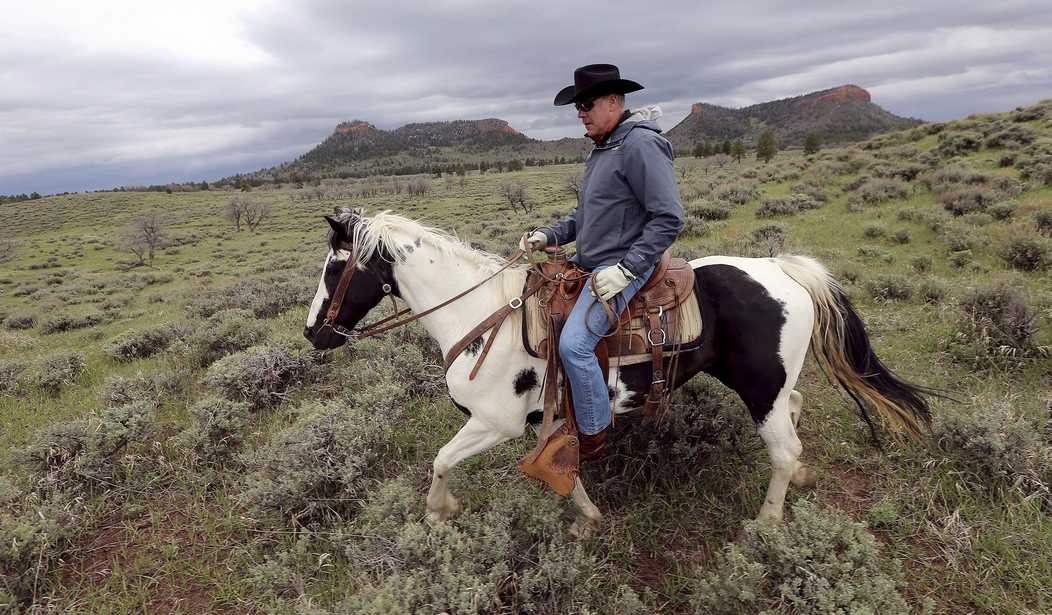WASHINGTON – House Natural Resources Committee Chairman Rob Bishop (R-Utah) said the record amount of federal land designated for national monuments under former President Barack Obama demonstrated a “clear overreaching use” of the Antiquities Act.
Bishop argued that former President Obama “abused” his authority by designating more than 550 million acres of federal land for national monuments. Bishop said the national monuments selected last year “averaged 739,000 acres – more than 40 times the size of those that were created 110 years ago.”
“He used his authority 34 times to designate over 550 million acres of land and water as national monuments – that’s just under 190,000 acres of land and water locked up for every day he was in office – that’s an area the size of Rhode Island that was allegedly protected every four days for the eight years he was in office,” Bishop said on a conference call with reporters on Thursday about the Trump administration’s review of the National Monument designations made under the Antiquities Act 1906.
“The Bears Ears monument in Utah is 34 times the size of the entire District of Columbia. To put it in further perspective, Bears Ears monument is double the size of the entire state of Rhode Island. Grand Staircase in Utah is three times the size of the entire state of Rhode Island. People have a hard time imagining the size of what we are talking about, but it’s a reality,” he added.
In December, President Obama proclaimed that the twin buttes of Bears Ears have “abundant rock art, ancient cliff dwellings, ceremonial sites, and countless other artifacts” that “provide an extraordinary archaeological and cultural record that is important to us all, but most notably the land is profoundly sacred to many Native American tribes, including the Ute Mountain Ute Tribe, Navajo Nation, Ute Indian Tribe of the Uintah Ouray, Hopi Nation, and Zuni Tribe.”
Some Navajo had protested the plan, arguing that if their sacred space became a federal monument they would be restricted from holding religious ceremonies on the buttes, as well as hunting, grazing livestock or gathering natural medicines. Obama acknowledged the native uses in the proclamation, adding that the area is “one of the most intact and least roaded areas in the contiguous United States.”
Sen. Mike Lee (R-Utah) slammed Obama’s designation at the time as “arrogant act by a lame-duck president.”
Interior Secretary Ryan Zinke has reportedly recommended the Trump administration decrease the size of Grand Staircase and Bears Ears. Bishop declined to discuss the specifics of Zinke’s suggestions in the report submitted to the White House.
Lee said in a statement Thursday that Zinke “has done a fantastic job reaching out and listening to the local communities most affected by these monument designations.”
“His conclusion that ‘some monuments were either arbitrary or likely politically motivated’ is spot on,” the senator added.
House Minority Whip Steny Hoyer (D-Md.) slammed the report as “an abdication of this Administration’s responsibility to serve as stewards of our public lands and national monuments for current and future generations.”
“Shutting down America’s public lands and national monuments is deeply unpopular, and the economic impact of doing so is substantial. I also continue to stand with Native American tribes in the fight to preserve their access to the lands that have sustained them for generations,” Hoyer added, urging President Trump to “not to make any of the changes the Secretary of the Interior is recommending.”
Bishop insisted “this is not about energy” or even “about national parks.”
“This is not about whether there are landmarks or structures or objects that need enhanced protection – that’s a false rhetoric. These are distractions,” the chairman said. “The truth is the debate is about the process and the rule of law. It’s about how we protect our resources, not if we protect them, and it’s also about keeping the public trust while achieving these shared goals.”
Bishop said Zinke’s report is going to be reviewed by the Trump administration and details will be released publicly at a later date. The Interior Department said Thursday only that it had completed the review.
“The White House and the secretary [of Interior] will announce the details on their own timeframe, but what is a takeaway from all of this and what we all can learn from this is the process of the use of the Antiquities Act has been abused and must be reformed to turn it back into a tool that can be useful and actually allow people’s voices to be heard,” he said.
“There are outside special interest groups who are spending lots of money to blur the lines between antiquities and other areas of federal land and their designations,” he added.
Bishop emphasized that he’s been advocating for protection of Bears Ears for “years” by supporting legislation that would bring about “co-management” of portions of the monument.
Bishop said Congress should reform the existing version of the Antiquities Act because its original “intent” has been “distorted” over several administrations.
“Only Congress can permanently prevent future abuses and they must act to do so. We need to reform the Antiquities Act to ensure it’s being used to protect antiquities but also that there is public access to this land and public input to it, and it’s done in a transparent process – and that’s clearly not being done at the present time,” he said. “So we have to set reasonable limits on the future use of the Antiquities Act, restore it to its original intent and have the Antiquities Act be used to create monuments the correct and proper way with the intent of the law.”








Join the conversation as a VIP Member